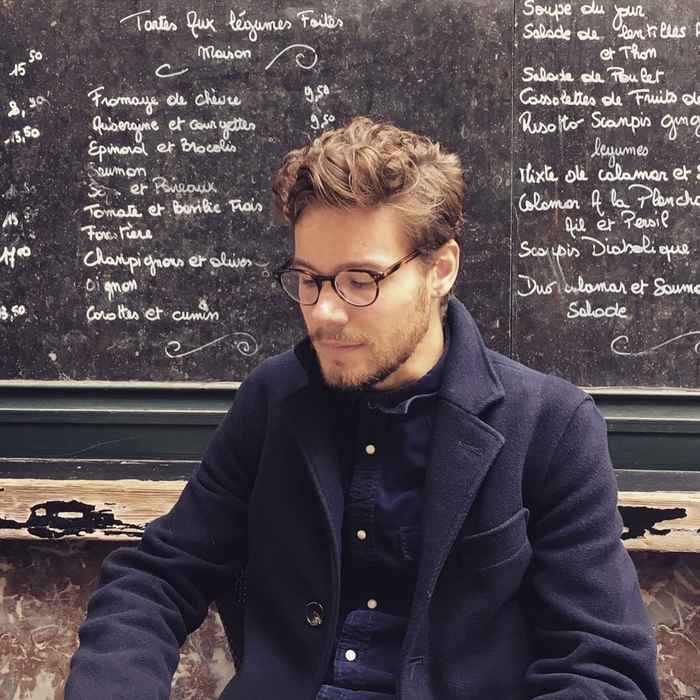Niels Nuijten

What is the most important thing you learned during your Master's?
I learned to think, write and reason academically, and to have a professional attitude towards the field of theatre and the process of making it; I learned about my personal interests and qualities, as well as a lot of things I can still improve myself in. What makes this programme particularly valuable is the way it combines academic, professional and personal aspects. You develop a personal look on philosophical matters, professionalise your personal talents and interests, and learn to translate academic matters into the professional or practical sphere.
What are the key features of the International Dramaturgy programme?
Its dual structure. Next to the theoretical courses, you are also trained in other aspects that are less academic, but necessary in the field of dramaturgy. Being able to conduct research on a wide range of topics and analyse matters in a scholarly and academic way is just as important in the work of a dramaturge as, for instance, knowledge of the process of making theatre or working and communicating with others. This duality of qualities is reflected in the way the courses and lectures interchange with more practical activities, like workshops and projects, 'intervision' sessions with professional dramaturges and, of course, an internship.
What kind of internship did you do? How did the Master's programme make this possible?
There are a lot of opportunities when it comes to internships as the Faculty has many contacts with organisations and dramaturges. In my experience, this also means it is very important to make a conscious choice about what kind of internship suits you best. The programme’s staff is very helpful in guiding this process since they have a good sense of the opportunities. In my case, I shared my internship ideas with our professor Kati Röttger.
I wanted to do an internship as a dramaturge, preferably involving music and an international scope., I also wanted to learn about the responsibilities of a dramaturge in an organisation. She suggested the opera house La Monnaie / De Munt in Brussels, where a former student of the programme was now working as Director of Dramaturgy and Empowerment. This resulted in me living in Brussels for six months, learning about all the ins and outs of the daily practice of the dramaturge; doing research, writing for programme books, but also being actively involved in rehearsals and preparations for different productions.
Did you do a specialisation?
I did not choose a specialisation very consciously at first, although in hindsight my choices do reflect a tendency. Since I studied music before, my interest in this field continues to inform the choices that I make. I was lucky, because during my Master’s, the Dutch National Opera celebrated its 50th birthday, resulting in a lot of activities in this field. For example, a masterclass by Pierre Audi, as well as the first edition of the Opera Forward Festival, in which I worked with students from different fields to make a short opera from scratch. Another way in which I directed my studies was an international one. I followed the 'Dutch' variant of the Master's programme, but my interest in different languages and an international work-field nudged me in the direction of Theatre & Globalisation and an internship abroad.
Do you now have a job that matches the programme?
In this first year after graduating, my work is project-based, as it is for a lot of my fellow students. This is a great way to develop myself and my qualities, not just as a dramaturge but as a professional in theatre in a broader sense. This past season, I worked for De Toneelschuur in Haarlem, while working on different projects with theatre-makers. Some of them young and new to the field – for example graduating as directors in a theatre school – others professional. I learn a lot from all of these different environments and situations. At the moment, I'm working full-time in the artistic planning department of Opera Vlaanderen. This enables me to develop quite hardcore organisational and people-management skills. Since this department is concerned with the daily artistic processes as well as long-term programming, it allows me to make use of my dramaturgical background and views in new ways.
Would you recommend this programme to aspiring dramaturges?
Certainly. I would like to point out that following the programme does not automatically get you a full-time job as a dramaturge. I'm not stating this to demotivate anyone, I think this offers a lot of freedom and opportunity. The programme can provide you with all the tools you need to be a conscious and professional agent in the field of theatre or research, or actually any other field. It is up to you to decide how you use those tools and qualities to form your own path.